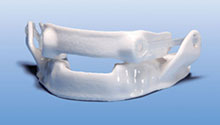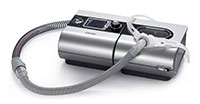How Is Sleep Apnea Treated?


Sleep apnea is treated with lifestyle changes, oral appliance, surgery and CPAP. Medicines typically aren’t used to treat the condition.
The goals of treating sleep apnea are to restore regular breathing during sleep and relieve symptoms such as loud snoring and daytime sleepiness
Treatment may improve other medical problems linked to sleep apnea, such as high blood pressure. Treatment also can reduce your risk for heart disease, stroke and diabetes.
Lifestyle Changes
If you have mild sleep apnea, some changes in daily activities or habits might be all the treatment you need.
Avoid alcohol and medicines that make you sleepy. They make it harder for your throat to stay open while you sleep.
Lose weight if you’re overweight or obese. Even a little weight loss can improve your symptoms.
Sleep on your side instead of your back to help keep your throat open. You can sleep with special pillows or shirts that prevent you from sleeping on your back.
Keep your nasal passages open at night with nasal sprays or allergy medicines, if needed. Talk with your doctor about whether these treatments might help you.
If you smoke, quit. Talk with your doctor about programs and products that can help you quit smoking.
If these measures don't improve your signs and symptoms or if your apnea is moderate to severe, a number of other treatments are available. Certain devices can help open up a blocked airway.
Oral Appliance (Mouthpieces)
An oral appliance may help some people who have mild sleep apnea. Your doctor also may recommend an oral appliance if you snore loudly but don’t have sleep apnea.
If you use an oral appliance, tell your doctor if you have discomfort or pain while using the device. A number of devices are available from your dentist. You may need to try different devices before finding one that works for you. Because oral appliances aren't as consistently effective as CPAP, close follow-up is needed to ensure successful treatment of sleep apnea.
You may need periodic office visits so your doctor can adjust your oral appliance to fit better.
Surgery
Some people who have sleep apnea might benefit from surgery. The type of surgery and how well it works depend on the cause of the sleep apnea.
Surgery is done to widen breathing passages. It usually involves shrinking, stiffening, or removing excess tissue in the mouth and throat or resetting the lower jaw.
CPAP
CPAP (continuous positive airway pressure) is the most common treatment for moderate to severe sleep apnea in adults. A CPAP machine uses a mask that fits over your mouth and nose, or just over your nose.
The CPAP gently blows air into your throat. The pressure from the air helps keep your airway open while you sleep.
Usually, the CPAP therapists will set up the CPAP machine and adjust it based on your doctor’s prescription. After the initial setup, you may need to have the CPAP adjusted from time to time for the best results.
CPAP treatment may cause side effects in some people. These side effects include a dry or stuffy nose, irritated skin on your face, dry mouth, and headaches. If your CPAP isn’t adjusted proper ly, you may get stomach bloating and discomfort while wearing the mask.
Although CPAP is the most consistently successful and most commonly used method of treating sleep apnea, some people find it cumbersome and uncomfortable.If you’re having trouble with CPAP side effects, work with your sleep specialist, and CPAP therapists. Together, you can take steps to reduce the side effects.
For example, the CPAP settings or size/fit of the mask might need to be adjusted. Adding moisture to the air as it flows through the mask or using nasal spray can help relieve a dry, stuffy, or runny nose.
There are many types of CPAP machines and masks. Tell your CPAP therapist if you’re not happy with the type you’re using. They may suggest switching to a different type that might work better for you.
People who have severe sleep apnea symptoms generally feel much better once they begin treatment with CPAP.
|